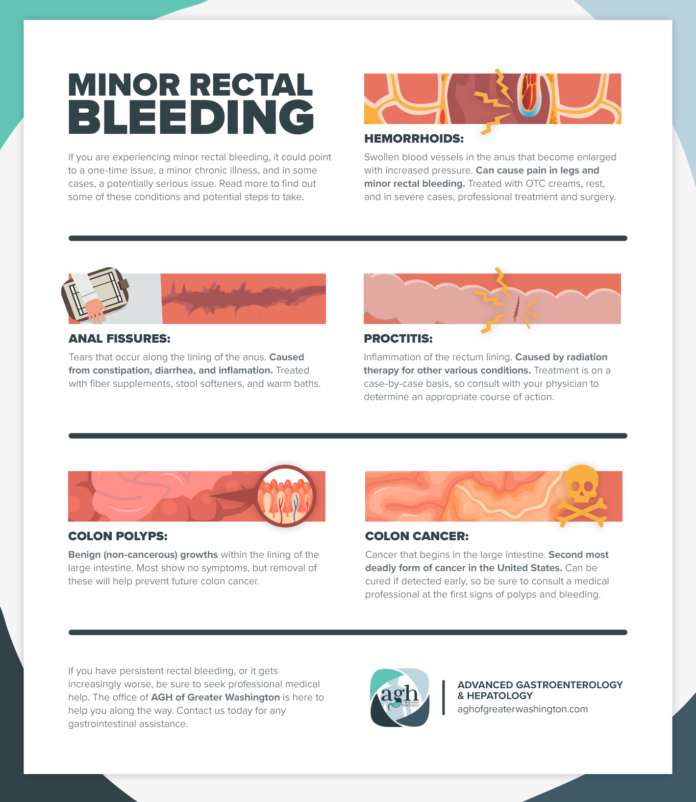
Understanding the Link Between Rectal Bleeding and Colon Cancer
Colon cancer is a serious health condition that affects millions of people worldwide. One of the common symptoms associated with this disease is rectal bleeding. Although rectal bleeding can occur due to various reasons, it is crucial to acknowledge its potential link to colon cancer. By being aware of this connection, individuals can seek timely medical attention and take necessary preventive measures to improve their overall health.
Rectal bleeding refers to the presence of blood in the stool or the passage of blood through the rectum. It is often observed as bright red blood on the toilet paper, in the toilet bowl, or mixed with the stool. While rectal bleeding can result from benign causes such as hemorrhoids, fissures, or anal tears, it can also be a warning sign of a more serious underlying condition such as colon cancer.
Colon cancer, also known as colorectal cancer, primarily affects the colon or rectum. It typically starts as small, benign growths called polyps, which can develop into cancer over time. The presence of blood in the stool is an alarming symptom suggesting the potential presence of malignant growths in the colon. Therefore, it is essential to investigate the cause of rectal bleeding promptly, especially if other accompanying symptoms such as abdominal pain, changes in bowel habits, unexplained weight loss, or fatigue are present.
The association between rectal bleeding and colon cancer can be better understood by considering the risk factors and contributing factors associated with the development of this malignancy. Age is a significant risk factor for colon cancer, with most cases occurring in individuals aged 50 and above. Family history of colon cancer or certain genetic conditions, such as Lynch syndrome or familial adenomatous polyposis, also increases the likelihood of developing the disease.
Besides these genetic factors, certain lifestyle choices and medical conditions can also contribute to colon cancer risk. Sedentary lifestyle, obesity, smoking, excessive alcohol consumption, and a diet high in red and processed meats and low in fruits and vegetables have been linked to an increased risk of colon cancer. Additionally, conditions such as inflammatory bowel disease (Crohn’s disease or ulcerative colitis), diabetes, and certain inherited syndromes predispose individuals to the development of colon cancer.
Regular screening is essential for the early detection and prevention of colon cancer. Colonoscopy is a common screening test that allows the visualization of the entire colon and rectum for the presence of polyps or abnormalities. Other screening methods, such as fecal occult blood tests or sigmoidoscopy, can also help identify early signs of colon cancer. Recognizing the link between rectal bleeding and colon cancer, individuals experiencing rectal bleeding should consult their healthcare provider to determine the most appropriate screening method and schedule based on their risk factors and symptoms.
It is crucial to understand that rectal bleeding does not always indicate colon cancer. Several benign conditions can cause rectal bleeding, such as hemorrhoids, anal fissures, diverticulosis, or inflammatory bowel disease. However, it is best not to ignore rectal bleeding as a mere inconvenience. Seeking medical attention and discussing the symptoms and concerns with a healthcare provider allows for a thorough evaluation and potential early detection of any underlying health issues.
When diagnosed with colon cancer, timely treatment can significantly improve survival rates. Treatment options depend on various factors, including the stage and location of the cancer. Surgery to remove the tumor, chemotherapy, radiation therapy, targeted therapy, or immunotherapy may be recommended based on the individual’s condition.
In conclusion, rectal bleeding can be a potential indicator of colon cancer; hence, it is essential to understand the link between the two. While rectal bleeding can result from a range of causes, including benign conditions, it should not be ignored, especially if accompanied by other concerning symptoms. Regular screening and a healthy lifestyle can help prevent colon cancer, while early detection allows for effective treatment and improved outcomes. If you are experiencing rectal bleeding, speaking to your healthcare provider is the first step toward understanding and addressing the potential underlying causes.

















